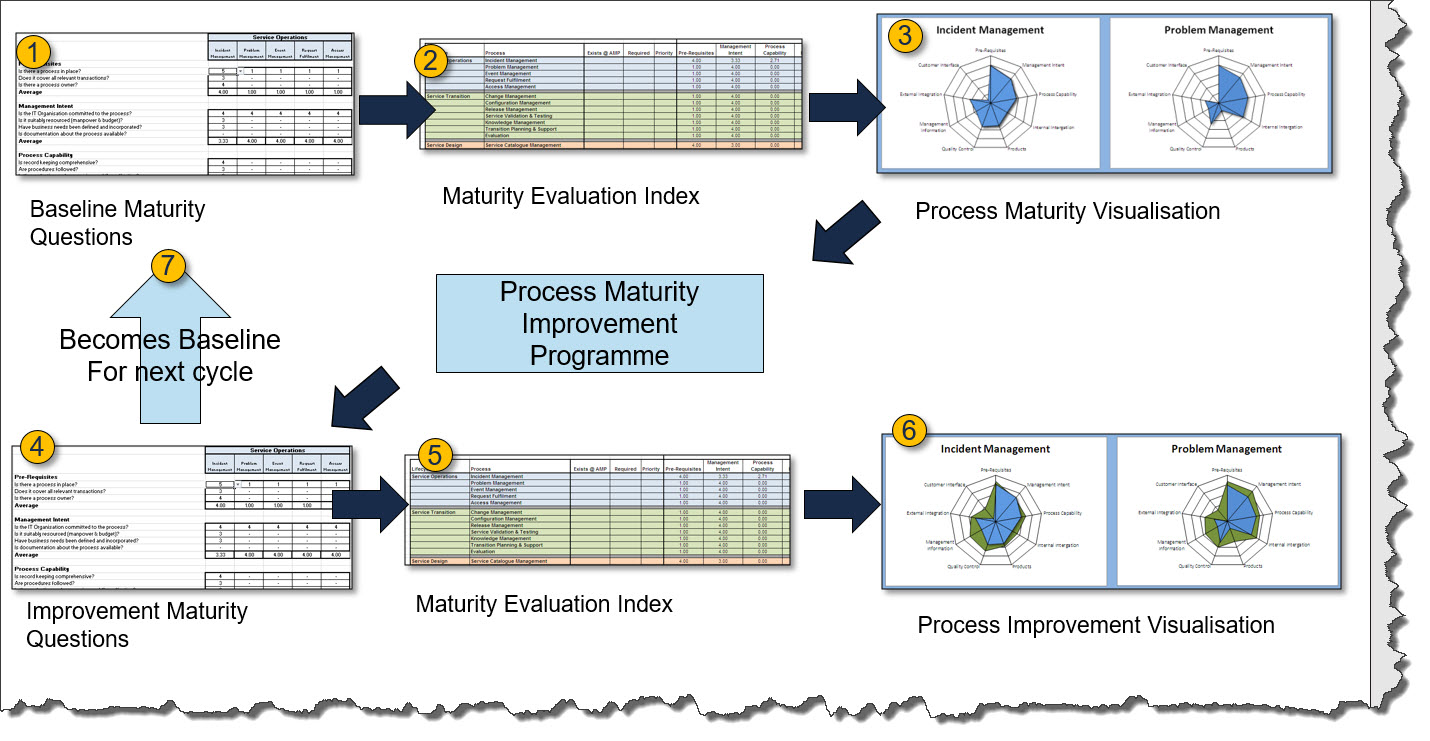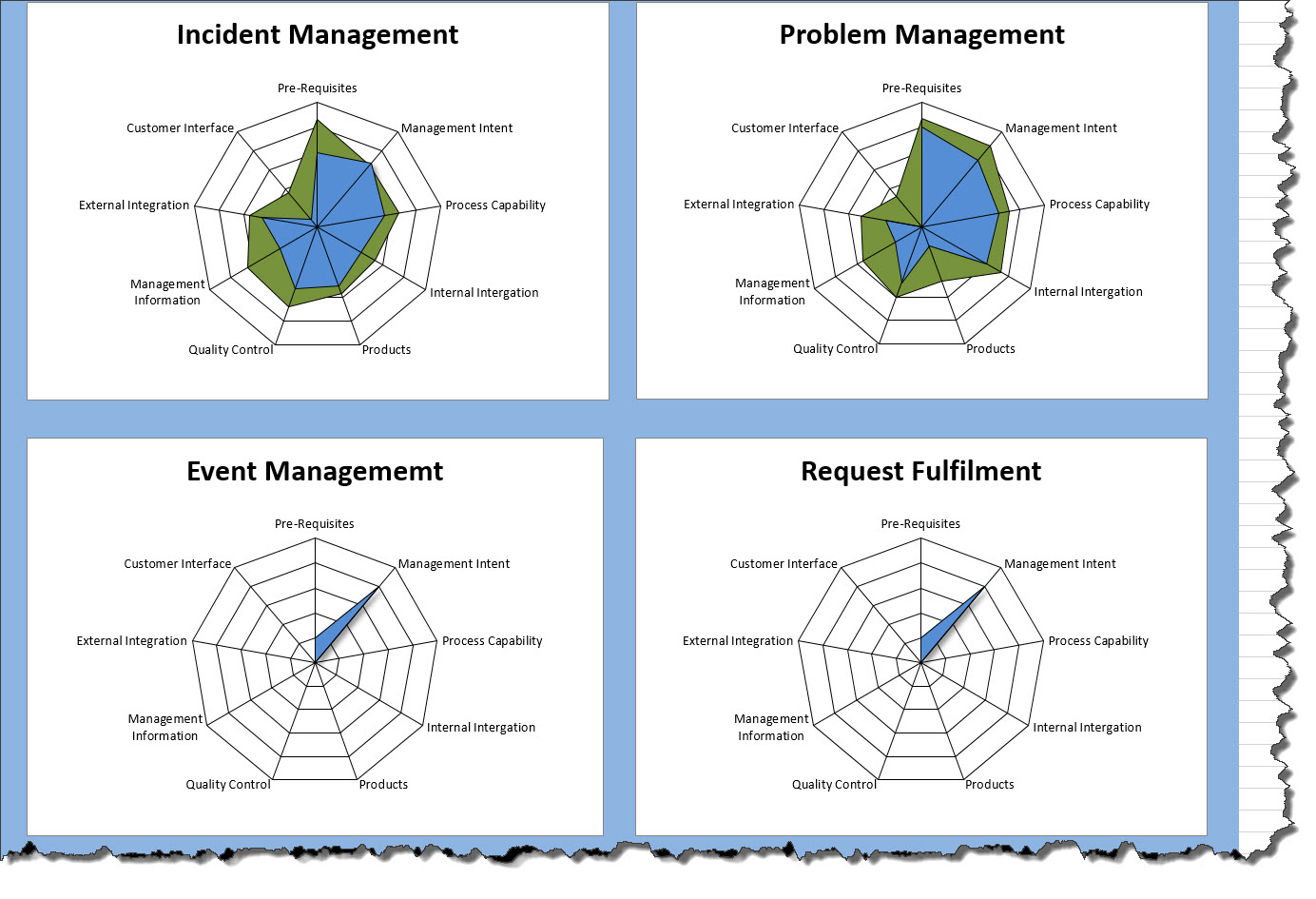ITSM Process Maturity Evaluation
Why are we doing this?
It is useful to measure Service Management process maturity for a number of reasons:
- To understand the strengths and weaknesses of existing processes.
- As a guide to planning continual process improvement.
- As a mechanism to measure the impact of process improvement activities.
What is it?
The Process Maturity Evaluation is a method of assessing the current state of Service Management processes and procedures, it needs to:
- Have the right balance between detail and effort.
- Be flexible enough to be applied to any Service Management Process.
- Capture input from all stakeholders, not just Service Management.
- Deliver actionable information to drive improvement.
- Can be used to drive Continual Service Improvement.
How does it work?
- Using a set of standard process maturity questions, we assess the current state of each process/procedure, evaluating 9 aspects of maturity (typically these are pre-requirements, management intent, process capability, internal integration, products, quality control, management information, external integration and customer interface. These may vary depending on organisation types and priorities), grading on a scale from 0-5.
- Based on this we then identify and execute a process improvement plan to address the maturity issues that we have identified.
- Using the same approach, we re-evaluate process maturity to measure the improvement achieved and to identify the next cycle of improvement.
Process Maturity Evaluation Cycle

Sample Process Maturity Questions and Model

Sample Process Maturity Evaluation Results (Visuals)

Summary
ITSM process maturity questions can vary depending on organisation types and priorities and also the baseline questions can be changed to track improvements based in initial scores. Hope you found this useful.
Category:
Uncategorized 